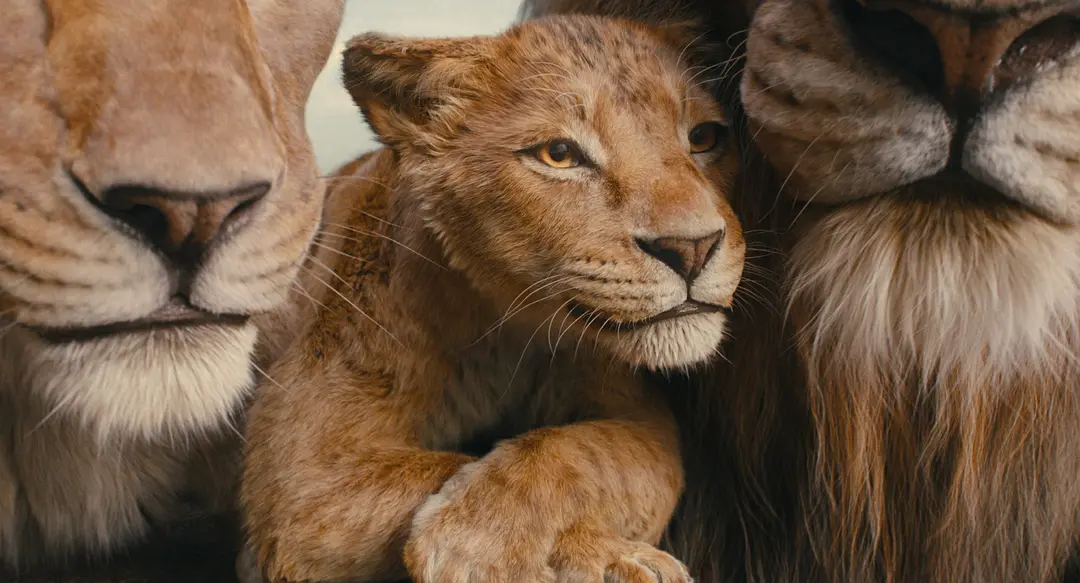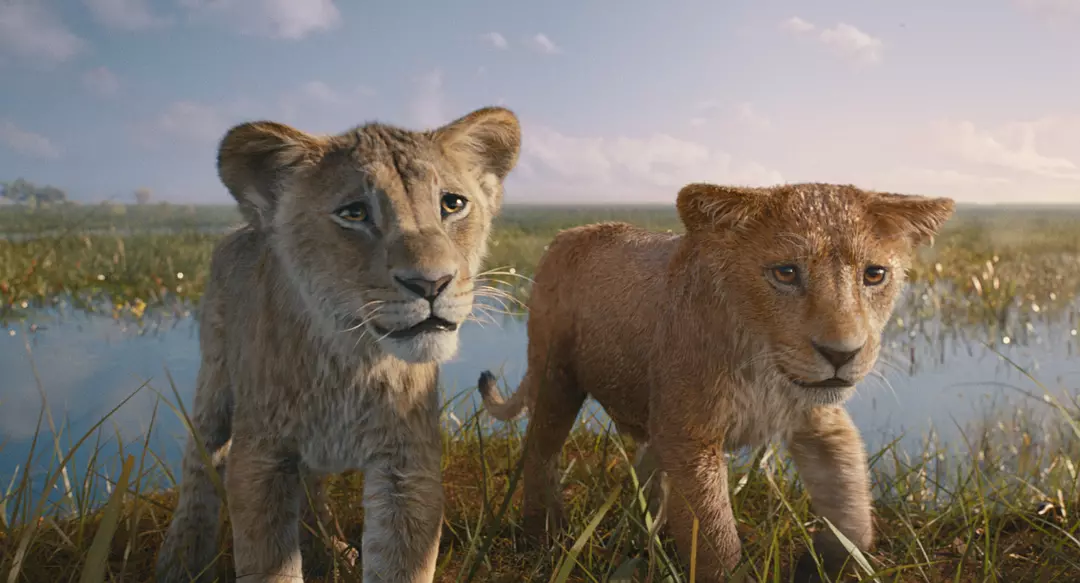A Young Lion’s Journey
*Mufasa: The Lion King* takes audiences on a sweeping prequel adventure that explores the formative years of one of Disney’s most iconic rulers. Long before the birth of Simba and the events of the original classic, the film traces Mufasa’s rise from an uncertain young cub into the lion destined to lead the Pride Lands. At the heart of the story is his complicated relationship with his brother Taka, later known as Scar, whose choices and rivalry shape not only their lives but the future of the entire kingdom.
Unlike previous films that focused on Simba’s coming-of-age, this prequel allows viewers to see Mufasa as a character still learning about responsibility, trust, and courage. By delving into his past, the story broadens the Lion King mythology, showing that greatness is not inherited but earned through hardship, relationships, and decisive choices. It also paints the Pride Lands not just as a setting, but as a living world filled with challenges that test Mufasa’s spirit and define his destiny.
 Brotherhood, Adventure, and Destiny
Brotherhood, Adventure, and Destiny
The narrative follows young Mufasa as he encounters memorable allies who influence his path: the wise shaman Rafiki, whose spiritual guidance grounds him; the strong and compassionate Sarabi, whose loyalty and courage become cornerstones of Mufasa’s journey; and the witty, talkative hornbill Zazu, who adds levity while reminding the group of the stakes they face. Together, this unlikely collection of characters embarks on adventures across sweeping savannahs, treacherous ravines, and hidden oases. Their encounters with rival predators and natural challenges test their resilience, while moments of humor and camaraderie highlight the value of teamwork and friendship.
Central to the plot is the evolving relationship between Mufasa and Taka. At first, the brothers share an undeniable bond, but Taka’s jealousy and insecurities gradually deepen. Their different worldviews—Mufasa’s growing sense of duty versus Taka’s yearning for recognition and freedom—create rifts that foreshadow the tragic betrayal audiences know awaits. The film smartly balances this foreshadowing with moments of warmth, showing that their conflict is born not out of pure malice but from love, rivalry, and wounded pride. This complexity makes their eventual division more heartbreaking and profound, turning familiar lore into an emotionally layered tale.
 Characters and Visual Splendor
Characters and Visual Splendor
Mufasa’s portrayal is a highlight of the film. Instead of the untouchable king he later becomes, we see him as a lion who doubts himself, stumbles, and learns. His growth feels authentic, showing that even leaders must face fear and failure before they can inspire others. Taka, meanwhile, benefits from a richer backstory that reveals his vulnerability. His sharp wit and charm conceal a sense of inadequacy, and this nuance makes his descent into Scar all the more tragic. Viewers gain empathy for his struggles, even as they recognize the dangerous path he is beginning to take.
Supporting characters bring texture and vitality to the story. Rafiki provides spiritual wisdom while maintaining a playful eccentricity; Sarabi’s strength and compassion foreshadow her future as a queen; and Zazu injects humor with his chatter, lightening the tension without undermining the stakes. Each companion plays a distinct role in Mufasa’s transformation, showing that leadership is never a solitary journey.
Visually, the film is stunning. The Pride Lands are rendered in sweeping detail, from golden plains stretching under the sun to intimate close-ups of animal communities that reveal the interconnectedness of life. Chase sequences across cliffs and rivers highlight the agility and danger of the wild, while quieter scenes bathed in moonlight emphasize reflection and emotional weight. The animation blends realism with artistic expression, making every landscape feel alive. Just as impactful is the film’s sound design and music, which echo the grandeur of the original while introducing new rhythms that connect African traditions with modern cinematic scoring. The combination of sight and sound immerses viewers in a world both familiar and refreshingly new.
 Themes and Audience Appeal
Themes and Audience Appeal
At its core, *Mufasa: The Lion King* is a story of leadership, responsibility, and the cycle of life. The film underscores that greatness is not a birthright but something forged through trials and relationships. Mufasa’s journey illustrates that leadership requires vulnerability, sacrifice, and the ability to put the pride above oneself. By contrast, Taka’s path highlights how jealousy and the hunger for validation can distort love and loyalty into bitterness. Their intertwined destinies embody the duality of brotherhood: the potential for both support and betrayal.
Thematically, the story also reinforces the “Circle of Life,” reminding audiences that every decision ripples outward into the broader community. The Pride Lands are portrayed as a delicate balance, one that can only thrive when leaders act with wisdom and compassion. For families, this message resonates as both timeless and universal—teaching younger audiences about responsibility and older viewers about the weight of legacy.
Fans of the Lion King franchise will find much to love: the nostalgia of familiar faces, the thrill of expanded lore, and the emotional richness of exploring Mufasa’s untold story. The film balances humor, action, and heartfelt emotion in a way that appeals across generations. Children will be captivated by the lively characters and adventurous spirit, while adults will appreciate the deeper themes of destiny, loss, and resilience. By the time the story closes, audiences are left with a greater understanding of Mufasa’s nobility and the sacrifices that shaped him into the king remembered in Simba’s time.
Ultimately, *Mufasa: The Lion King* is more than a prequel—it is a story about the making of a leader, the fragility of brotherhood, and the enduring legacy of the Pride Lands. Its breathtaking visuals, complex characters, and resonant themes ensure that it stands not just as an extension of the franchise, but as a powerful tale in its own right.





